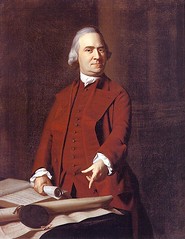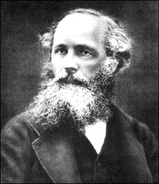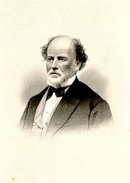______________________________________
Matthew 13:
1 The same day went Jesus out of the house, and sat by the sea side. 2 And great multitudes were gathered together unto him, so that he went into a ship, and sat ; and the whole multitude stood on the shore. 3 And he spake many things unto them in parables, saying , Behold , a sower went forth to sow ; 4 And when he sowed , some seeds fell by the way side, and the fowls came and devoured them up : 5 Some fell upon stony places, where they had not much earth: and forthwith they sprung up , because they had no deepness of earth: 6 And when the sun was up , they were scorched ; and because they had no root, they withered away . 7 And some fell among thorns; and the thorns sprung up , and choked them: 8 But other fell into good ground, and brought forth fruit, some an hundredfold , some sixtyfold , some thirtyfold. 9 Who hath ears to hear , let him hear . 10 And the disciples came , and said unto him, Why speakest thou unto them in parables? 11 He answered and said unto them, Because it is given unto you to know the mysteries of the kingdom of heaven, but to them it is not given . 12 For whosoever hath , to him shall be given , and he shall have more abundance : but whosoever hath not, from him shall be taken away even that he hath . 13 Therefore speak I to them in parables: because they seeing see not; and hearing they hear not, neither do they understand . 14 And in them is fulfilled the prophecy of Esaias, which saith , By hearing ye shall hear , and shall not understand ; and seeing ye shall see , and shall not perceive : 15 For this people's heart is waxed gross , and their ears are dull of hearing , and their eyes they have closed ; lest at any time they should see with their eyes, and hear with their ears, and should understand with their heart, and should be converted , and I should heal them.
When reading the above passage, the first question that came to my mind was: If the gospel is universal, for "whosoever" and "anyone who believes," why did Christ say here in Matthew 13:11 "... it is given unto
you to know the mysteries of the kingdom of heaven, but to
them it is not given." Let me rephrase what Christ said, so those of you who have a difficult time understanding English, may see the verse in a different light:
"What I have to say about the mysteries of the kingdom of heaven is for you. Keep in mind, I told you back in Matthew 10: 5 "You
should not depart into the way of the heathens, and you
should not enter into a city of Samaritans. 6 But rather you
must go to the lost sheep of the house of Israel. 7 And going you proclaim, saying that ‘the kingdom of the heavens has neared!’ What I have to say is not for everyone, it is not for them. Because what I have to say about the mysteries is not for them, I speak to them in parables - to make sure they do not understand what I am saying. But to those of you who what I say is given to understand, I explain - in private - what the parables mean."
Right there in Matthew 13, Yahshua Christ plainly states what He had to say was not for them. Back in Matthew 10 He plainly commands the Twelve to not go to the "heathen" but rather go to the "lost [exiled] sheep of the house of Israel."
I actually had a universalist tell me that the command in Matthew 10, to not go to the heathens, was before the resurrection. After the resurrection, the command was to "Go ye, therefore and teach all nations ..." Matthew 28:19.
I said, "So, you believe Christ changed His entire plan?"
I pointed out his interpretation contradicted the above verses and perhaps what was meant in Matthew 28:19 was to go to all the nations and teach the "lost [exiled] sheep of the house of Israel" which would not contradict what Christ had said earlier. I pointed him to James' epistle, chapter one, verse one: "to the twelve tribes which are scattered abroad." And to the entire book of Hebrews, which of course refers to the house of Israel. I further explained that the book of Hebrews was not written to the Mongolians, or the the Vietnamese or the Aborigines. What Christ had to say was not for them, but for the lost [exiled] sheep of the house of Israel, that is, the Hebrews, the "twelve tribes scattered abroad among the nations." I could have explained how all of Paul's epistles were written to the exiled sheep of the house of Israel, but if he did not understand the significance of James and Hebrews, he was not going to understand Paul's epistles either. Pearls and swine came to mind.
This Johnny-one-verser came back with another one-verse answer: "For God so loved the world, that He gave His unique son, that whosoever believes on Him, should not perish, but have eternal life."
To that I replied: in Luke 2:1 was the "whole world" expected to travel to Palestine to register for tax purposes? Did the Mongolians, the Chinese the Aborigines have to travel to Herod's kingdom to be taxed? Even he had to admit that the answer was "No." If the world in Luke 2:1 does not mean the whole world, then just perhaps the word "world" in John 3:16 does not mean the "whole world" but that of the Israelite world or "society" [another quite acceptable translation for the Greek word "kosmos."] See
MatthewDear Christians: the Bible was written by Israelites, about Israelites, to Israelites and for Israelites. These Israelites are not to be confused with the so-called jews of today, who claim to be the Israelites of the Old Testament. They are not. They are the Edomite jews that Christ clearly states are "of [from] their father the devil" in John 8:44 and "are not of God" in verse 47.
"I am not come, save for the exiled sheep of the house of Israel."
For use of the term Gentile, see also:
Misapplication of the Term Gentile
Read More...
Summary only...




















